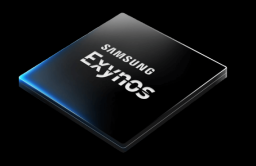-
KOSPI 2720.64 +50.49 +1.89%
-
KOSDAQ 736.29 +7.50 +1.03%
-
KOSPI200 363.08 +6.72 +1.89%
-
USD/KRW 1374 -6.00 0.44%
Samsung to equip Galaxy Z Flip7 with Exynos AP at home
Korean chipmakers
Samsung to equip Galaxy Z Flip7 with Exynos AP at home
The new Exynos 2500-equipped premium foldable is set to cut Samsung's manufacturing costs
By
May 28, 2025 (Gmt+09:00)
3
Min read
News+

Samsung Electronics Co. plans to power its upcoming foldable smartphone with its new in-house application processor (AP), marking a significant step toward reviving the chip unit after years of setbacks amid mounting AP purchasing costs.
According to industry sources on Tuesday, the South Korean tech giant plans to apply the Exynos 2500 to the Galaxy Z Flip7 foldable smartphones it will roll out this summer.
But the Exynos-powered foldable phones will be sold exclusively in Korea, while the same model released overseas, including North America, will use Qualcomm Inc.’s Snapdragon 8 Elite. The Galaxy Z Fold7 phones sold at home and abroad will also feature only Qualcomm chips.
This will mark Samsung’s first use of an Exynos AP in its high-end foldables, signaling renewed confidence in the performance and stability of its own silicon.
Samsung retooled the Exynos line in select Galaxy S24 models last year, following a one-year hiatus after quality concerns.
A mobile AP, often referred to as the brain of a mobile device, is a system-on-a-chip (SoC) designed to support applications running in a mobile operating system environment.
Responsible for data processing in smartphones, the AP incorporates the central processing unit (CPU), graphics processing unit (GPU) and neural processing unit (NPU), making it a critical component in smartphone performance.

Samsung’s hefty reliance on Qualcomm chips in recent years has increased costs, prompting the company to seek alternatives.
IMPROVED PRODUCTION YIELD
The Exynos is a mobile AP chipset designed by Samsung System LSI, Samsung Electronics’ chip design arm, and manufactured by Samsung Foundry, the company’s foundry unit.
The company will produce the Exynos 2500, the latest version of Samsung’s in-house mobile AP chip, using its most advanced 3-nanometer foundry process technology.
Samsung initially planned to power its latest flagship smartphone series, the Galaxy S25, with the new Exynos chip but abandoned the plan due to its low production yield rate and underwhelming performance.
Following a production revamp, the chip finally passed internal quality testing earlier this year by Samsung’s Mobile eXperience (MX) division, which oversees the development and sale of mobile devices.

OLD GLORY TO RETURN
By deploying Exynos in the premium foldable, Samsung hopes to regain ground in the global mobile AP market.
Once a strong contender to Qualcomm’s mobile AP products in the early 2010s, the Exynos brand faltered rapidly following thermal issues in the Galaxy S22 smartphone in 2022 and was omitted from its successor, the Galaxy S23, a year later.
It came back with some of the Galaxy S24 models last year, but its market share has declined sharply over the years amid the rapid ascent of Chinese rivals.
According to Counterpoint Technology Market Research, the Exynos held just 4% of the global mobile AP market in the fourth quarter of last year, down 1 percentage point from the previous quarter.
It was closely chased by HiSilicon, a fabless chip design arm of China’s tech giant Huawei Technologies Co., with 3%. Xiaomi Corp. has also begun developing its own novel APs.

The application of the Exynos to the Galaxy Z Flip7 is also expected to yield cost savings.
Over the cited period, Qualcomm raised the new AP model price by 30% compared to the predecessor upon every new launch.
This is largely due to Samsung’s weak bargaining power during AP price negotiations with Qualcomm due to its heavy reliance on them, market analysts said.
The US dollar has also significantly strengthened against the Korean won, exacerbating hikes in Samsung’s overall AP purchasing costs.
Insiders expect the Exynos 2500’s inclusion could help Samsung’s System LSI and Foundry units rebound financially after reporting a combined loss exceeding 2 trillion won in the first three months of this year, mainly due to the chip’s exclusion from the Galaxy S25, which hit the market early this year.
“Deploying the Exynos 2500 in the Galaxy Z Flip7 is expected to mark a turning point for the chip’s revival,” said an industry official.
Write to Chae-Yeon Kim at why29@hankyung.com
Sookyung Seo edited this article.
More To Read
-
Jan 23, 2025 (Gmt+09:00)
-
Jul 10, 2024 (Gmt+09:00)
-
Jun 07, 2024 (Gmt+09:00)
-
 Korean chipmakersSamsung aims to overtake TSMC, Apple with 3 nm Exynos W1000 chip
Korean chipmakersSamsung aims to overtake TSMC, Apple with 3 nm Exynos W1000 chipMay 13, 2024 (Gmt+09:00)
-
 Korean chipmakersSamsung’s AP chip Exynos turns from ugly duckling to golden swan
Korean chipmakersSamsung’s AP chip Exynos turns from ugly duckling to golden swanJan 22, 2024 (Gmt+09:00)
-
 Korean chipmakersSamsung weighs retooling Galaxy S series with Exynos chipsets
Korean chipmakersSamsung weighs retooling Galaxy S series with Exynos chipsetsAug 22, 2023 (Gmt+09:00)
-
 Tech, Media & TelecomSamsung touts latest Exynos 2200 chip as mobile game changer
Tech, Media & TelecomSamsung touts latest Exynos 2200 chip as mobile game changerJan 18, 2022 (Gmt+09:00)





